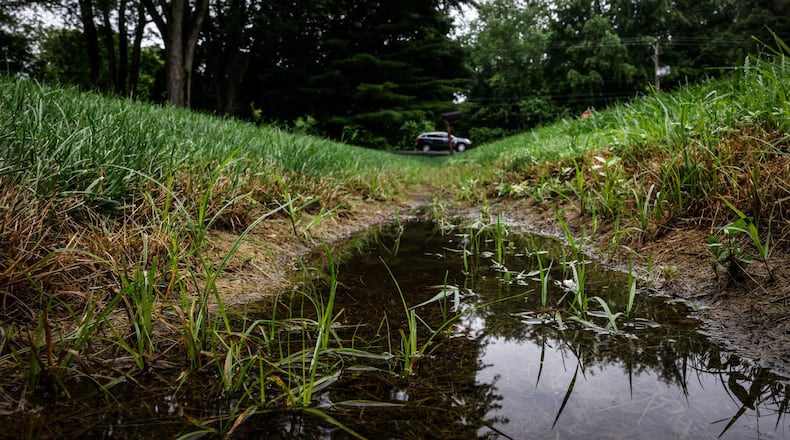A bill Ohio Gov. Mike DeWine signed last week also released funds to the state’s smaller cities and villages, which were not included in direct relief funds released from the U.S. Treasury earlier this year to counties, along with cities and townships with populations over 50,000.
More than $42 million will soon be available to 95 jurisdictions in Greene, Miami, Montgomery and Warren counties. A second round of funding, which still needs state legislative approval, is expected to double that amount, with the other half distributed 12 months later.
All but three townships in the state were initially left out of the relief funding because wording of the relief bill changed as the final version was drafted, said Morris, also a Miami Twp. trustee.
“The original language included townships, and then in subsequent iterations of writing, somehow townships were inadvertently excluded,” he said. “Unfortunately, the federal government chose to push the responsibility to change it to the states and we’re very grateful that our state did that.”
Despite a bipartisan effort of Ohio’s congressional delegation to clear up the confusion earlier, Ohio was one of eight states forced to determine whether townships were included in the funding for “non-entitlement units of local government.”
Without the recent action, a broad swath of the state’s township residents would have been shortchanged, said Heidi M. Fought, Ohio Township Association executive director.
“With townships providing essential services to four million Ohioans, they desperately need these funds, just like cities and villages,” she said.
The $1.9 trillion pandemic relief package signed in March by President Joe Biden included assistance for local governments to cover revenue losses, boost public infrastructure and assist households, workers and businesses hurt by the health crisis.
The four area county governments and the cities of Dayton, Fairborn and Kettering already received more than $361 million in American Rescue Plan funds.
Beavercreek, which missed out on the first round of relief funding, is expected to receive a total of $5 million through the state measure passed last week.
Beavercreek City Manager Pete Landrum estimates Beavercreek’s revenue loss due to the pandemic at roughly $2 million. The city is currently calculating the exact amount from all sources, including gas and lodging taxes, construction permitting, user fees and even from the loss of golf course concessions.
The relief money will go first to cover those losses, but Landrum said city staff will recommend using any funds remaining on stormwater projects, which have gone unfunded and unbuilt for years.
One area the city eyes for a potential stormwater project is at Willowcrest Road just off Grange Hall Road, Landrum said.
“When it rains real bad, that water just keeps on coming and takes no prisoners,” he said.
Stormwater projects, because of the effect on the environment, along with drinking water and sewer projects are among the allowable uses of the relief funds. City council, though, will ultimately determine the use of the money, Landrum said.
Miami Twp. is set to receive $3 million in relief money, but it may not stretch far, Morris said.
“Three million sounds like a lot of money. It is, but when you think of a larger project, it’s not quite enough,” he said.
Morris said there have been some early discussions about projects involving affordable housing, clean energy, small businesses and hotels in the township, but the money comes with many strings attached.
“We’re going to get together as an administration and trustees to determine where we think the money will be best allocated,” he said. “We’ll have to be looking at what are the uses that are authorized and go from there.”
About the Author

